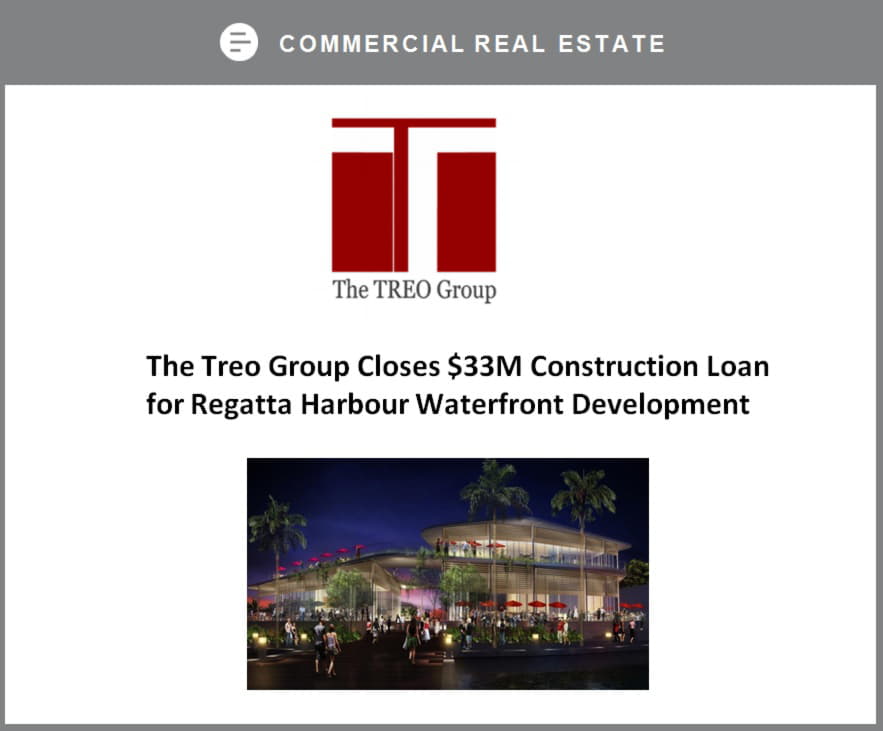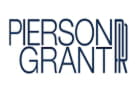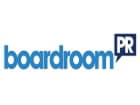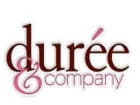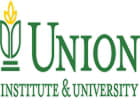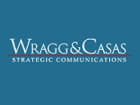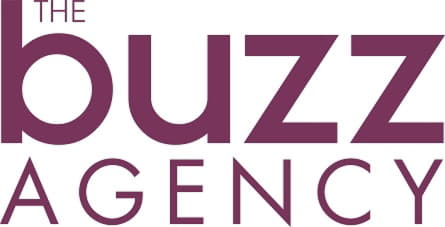MIAMI, Nov. 09, 2020 (GLOBE NEWSWIRE) -- Norwegian Cruise Line Holdings Ltd. (NYSE: NCLH) today reported financial results for the third quarter ended September 30, 2020 and provided a business update.
“The new Framework for Conditional Sailing Order issued by the U.S. Centers for Disease Control and Prevention is a step in the right direction on the path to the safer and healthier resumption of cruising in the U.S., reinforcing our existing rigorous commitment to health and safety. We will continue to collaborate with the CDC on next steps to relaunch operations with a shared goal of protecting the health and safety of our guests, crew and the communities we visit,” said Frank Del Rio, president and chief executive officer of Norwegian Cruise Line Holdings Ltd. “While we have a long road of recovery ahead of us, we are encouraged by the continued demand for future cruise vacations, especially from our loyal past guests, across all three of our brands.”
CDC Framework for Conditional Sailing Order
The U.S. Centers for Disease Control and Prevention (“CDC”) issued a Framework for Conditional Sailing Order (the “Conditional Order”), replacing the No Sail Order, that will permit cruise ship passenger operations in U.S. waters under certain conditions. The phases outlined in the Conditional Order include:
- Testing and additional safeguards for crew members, while building laboratory capacity needed to test guests and crew in the future;
- Simulated voyages to test a cruise ship operator's ability to mitigate COVID-19 risk;
- Certification for ships that meet specific requirements;
- A phased return to guest voyages in a manner that mitigates the risk of COVID-19 transmission among guests, crew and communities visited.
While the Conditional Order represents a step forward in the resumption of cruising in the U.S., significant uncertainties remain regarding certain requirements of the Conditional Order including pending technical instructions for future phases. The Company will continue to work with both the CDC and its expert advisors to refine its comprehensive health and safety strategy and to comply with all aspects of the Conditional Order.
Health and Safety
In September, the Healthy Sail Panel (“HSP”), a team of 11 globally recognized experts assembled by the Company in collaboration with Royal Caribbean Group, provided a 66-page report including 74 detailed best practices across five areas of focus to improve health and safety for passengers and crew, and reduce the risk of infection and spread of COVID-19 on cruise ships. The HSP concluded that by relentlessly focusing on prevention and other measures, public health risks associated with the pandemic can be mitigated in a cruise ship environment with a comprehensive set of science-backed protocols. The HSP’s recommendations span the entire cruise journey, starting from the time of booking and continuing post cruise, and will inform the Company’s own return to service plan. The cornerstone of this stringent plan is universal COVID-19 testing of 100% of all guests and crew prior to boarding. The Company will continuously evaluate, refine and identify ways to improve these standards as science, technology and knowledge of SARS-CoV-2 advances.
The HSP is co-chaired by Governor Mike Leavitt, former U.S. Secretary of Health and Human Services, and Dr. Scott Gottlieb, former commissioner of the U.S. Food and Drug Administration. The HSP’s members are globally recognized experts from various disciplines, including public health, infectious disease, biosecurity, hospitality and maritime operations.
Booking Environment and Outlook
While booking volumes since the emergence of the COVID-19 global pandemic remain below historical levels, there continues to be demand for future cruise vacations, particularly beginning for sailings operating in the second half of 2021 and beyond, despite limited marketing efforts. Our overall cumulative booked position for the first half of 2021 remains below historical ranges as expected due to the current uncertain environment, however, for the second half of 2021 it is in line with historical ranges. Pricing for full year 2021 is in line with pre-pandemic levels, even after including the dilutive impact of future cruise credits. Pent up future demand for cruising is further demonstrated by record booking achievements in September and October including Oceania Cruises’ Labor Day upgrade sale which was the most successful holiday promotion in the line’s history, a new World Cruise opening day booking record for Regent Seven Seas Cruises’ 2023 World Cruise and a new all-time largest single booking day in Regent’s history with the launch of its 2022-2023 Voyage Collection.
To provide additional flexibility to its guests, the Company has also extended its modified final payment schedule for all voyages through April 30, 2021 which requires final payment 60 days prior to embarkation versus the standard 120 days.
As of September 30, 2020, the Company had $1.2 billion of advance ticket sales, including the long-term portion of advance ticket sales, which includes approximately $0.85 billion of future cruise credits.
COVID-19 Financial Action Plan
The Company continues to take swift, proactive measures to mitigate the financial and operational impacts of COVID-19. This financial action plan includes previously implemented cost reduction and cash conservation levers which include reducing operating and capital expenditures, improving the Company’s debt maturity profile and securing additional capital. As of September 30, 2020, the Company’s total debt position was $10.9 billion and the Company’s cash and cash equivalents was $2.4 billion. The Company was in compliance with all debt covenants as of September 30, 2020.
The Company has taken the following additional actions since June 30, 2020:
- In July 2020, the Company closed on a series of capital market transactions resulting in $1.5 billion of gross proceeds. The triple-tranche transaction consisted of (i) approximately $288 million public offering of common equity, (ii) $450 million of 5.375% exchangeable senior notes and (iii) $750 million of 10.25% senior secured notes, the proceeds of which were used in part to repay the existing $675 million short-term revolving credit facility.
- Extended workforce furloughs.
- Extended 20% salary reduction for all shoreside team members.
- Continued significant reductions or deferrals of near-term marketing expenses. Marketing investments are focused on second half of 2021 and beyond, consistent with the planned gradual resumption of voyages.
The Company's monthly average cash burn rate for the third quarter 2020 was approximately $150 million. For comparative purposes, assuming vessels remain at minimum manning status, fourth quarter 2020 average cash burn rate would be higher at approximately $175 million per month, primarily driven by the timing of interest expense. For the second half of 2020, this would result in an average monthly cash burn rate of approximately $160 million, in line with the Company’s previously disclosed target rate during voyage suspensions. This cash burn rate and estimate includes ongoing ship operating expenses, administrative operating expenses, interest expense, taxes and expected capital expenditures and excludes cash refunds of customer deposits as well as cash inflows from new and existing bookings, other working capital changes, voyage resumption preparation costs and unforeseen expenses. This cash burn rate and estimate also reflects the deferral of debt amortization and newbuild related payments through March 31, 2021.
Due to the fluidity of the voyage resumption schedule and associated expenses, the Company estimates its actual cash burn rate for the fourth quarter 2020 will be higher than the comparative number referenced above. Average monthly cash burn is expected to increase as vessels are prepared to return to service due to additional costs associated with re-staffing, re-positioning and provisioning of vessels, implementation of new health and safety protocols and a disciplined ramp-up of demand-generating marketing investments.
“We are focused on positioning the Company to not only withstand an extended COVID-19 disruption but to emerge from this period with a clear path for long-term financial recovery,” said Mark A. Kempa, executive vice president and chief financial officer of Norwegian Cruise Line Holdings Ltd. “Our swift actions to adapt to this unprecedented environment by reducing costs, conserving cash and enhancing our liquidity profile will bolster our efforts to navigate through COVID-19, relaunch our vessels and, over the longer-term, optimize our balance sheet and resume our consistent track record of strong financial performance.”
Third Quarter 2020 Results
GAAP net income (loss) was $(677.4) million or EPS of $(2.50) compared to $450.6 million or $2.09 in the prior year. The Company reported Adjusted Net Income (Loss) of $(638.7) million or Adjusted EPS of $(2.35), in 2020, which included $38.6 million of adjustments primarily consisting of expenses related to non-cash compensation and losses on extinguishment and modifications of debt. This compares to Adjusted Net Income and Adjusted EPS of $481.5 million and $2.23, respectively, in 2019, which included $30.9 million of adjustments primarily consisting of expenses related to non-cash compensation.
Revenue decreased to $6.5 million compared to $1.9 billion in 2019 due to the complete suspension of voyages in the quarter.
Total cruise operating expense decreased 80.8% in 2020 compared to 2019. In 2020, our cruise operating expenses were primarily related to crew costs, including salaries, food and other repatriation costs, fuel, and other ongoing costs such as insurance and ship maintenance.
Fuel price per metric ton, net of hedges increased to $592 from $504 in 2019. The Company reported fuel expense of $48.2 million in the period. In addition, a net loss of $11.9 million was recorded in other income (expense), net primarily related to the de-designation of fuel hedges as a result of a reduction in forecasted fuel consumption resulting from voyage cancellations due to COVID-19.
Interest expense, net was $139.7 million in 2020 compared to $60.2 million in 2019. The change in interest expense reflects additional debt outstanding at higher interest rates, partially offset by lower LIBOR. Included in 2020 were losses on extinguishment of debt and debt modification costs of $6.6 million.
Other income (expense), net was expense of $23.7 million in 2020 compared to income of $10.3 million in 2019. In 2020, the expense primarily related to losses on foreign currency exchange and losses on fuel hedges recognized in earnings. A $11.9 million net loss was recorded in the quarter primarily related to the de-designation of fuel hedges as a result of a reduction in forecasted fuel consumption resulting from voyage cancellations due to COVID-19.
2020 Outlook
As a consequence of COVID-19, while the Company cannot estimate the impact on its business, financial condition or near- or longer-term financial or operational results with certainty, it will report a net loss on both a U.S. GAAP and adjusted basis for the fourth quarter and the year ending December 31, 2020.
As of September 30, 2020, the Company had hedged approximately 59%, 37% and 13% of its total projected metric tons of fuel consumption for 2021, 2022 and 2023, respectively. The following table provides amounts hedged and price per barrel of heavy fuel oil (“HFO”) which is hedged utilizing U.S. Gulf Coast 3% (“USGC”) and marine gas oil (“MGO”) which is hedged utilizing Gasoil.
| N/A | ||||||
| % of MGO Consumption Hedged | 61 | % | 49 | % | 22 | % |
| Average Gasoil Price / Barrel | $ | 80.94 | $ | 70.00 | $ | 67.45 |
Anticipated total capital expenditures for fourth quarter 2020 are approximately $150 million which includes additional health and safety investments. The Company is not providing capital expenditure guidance for future years at this time given the uncertain and evolving current environment. The impacts of COVID-19 on the shipyards where the Company’s ships are under construction, or will be constructed, have resulted in some minor delays in ship deliveries, and the impact of COVID-19 could result in additional delays in ship deliveries in the future, which may be prolonged.
About Norwegian Cruise Line Holdings Ltd.
Norwegian Cruise Line Holdings Ltd. (NYSE: NCLH) is a leading global cruise company which operates the Norwegian Cruise Line, Oceania Cruises and Regent Seven Seas Cruises brands. With a combined fleet of 28 ships with approximately 59,150 berths, these brands offer itineraries to more than 490 destinations worldwide. The Company has nine additional ships scheduled for delivery through 2027.
About the Healthy Sail Panel
Norwegian Cruise Line Holdings Ltd. in collaboration with Royal Caribbean Group established the Healthy Sail Panel (“HSP”), a group of 11 leading experts to help inform the cruise industry in the development of new and enhanced cruise health and safety standards in response to the global COVID-19 pandemic. The HSP, co-chaired by Dr. Scott Gottlieb, former commissioner of the U.S. Food and Drug Administration and Governor Mike Leavitt, former Secretary of the U.S. Department of Health and Human Services, consists of globally recognized experts from various disciplines, including public health, infectious disease, biosecurity, hospitality and maritime operations. The panel’s work, including 74 detailed recommendations across five key areas of focus, is informing the Company’s health and safety protocols and has been widely shared with the cruise industry and open to any other industry that could benefit from the HSP’s scientific and medical insights.


